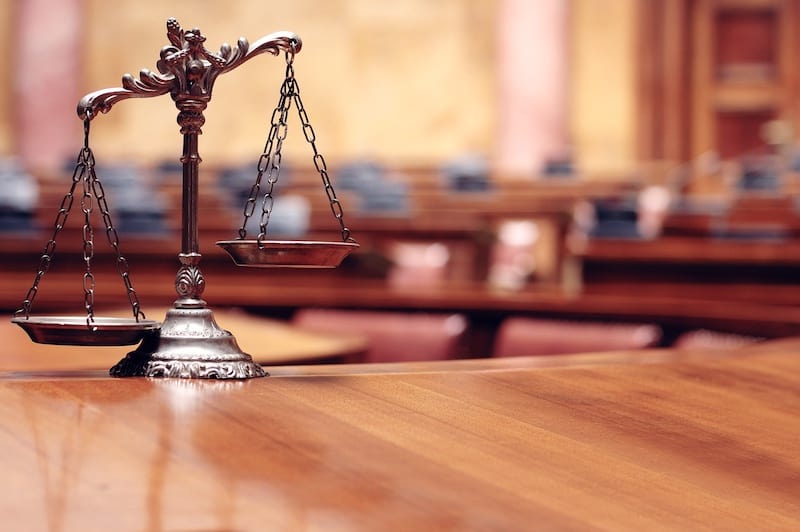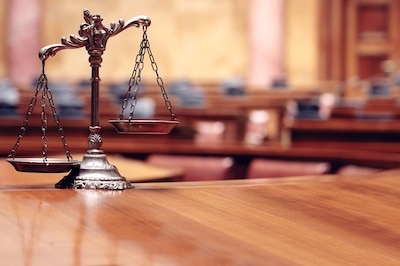
10 May Are Depositions Admissible at Trial?
Why Are Depositions Admissible at Trial?
Trying to learn the ins and outs of lawyer-speak and trial rules can be overwhelming and complicated. If you’re in the midst of your own case and are looking for more information, or if you’re just curious about what’s involved in trials, keep reading this article. You may find the answer to a question you didn’t even know you had!
So, are depositions admissible at trial? Yes. Depositions are part of the investigative process prior to a trial – this means that anything discovered during a deposition can be used in court if the case isn’t settled. Used as a means of building the opposing counsel’s case, deposition transcripts can be introduced at trial for a variety of different reasons.
What Is a Deposition?
In order to help you understand why a deposition may be admissible, and used, in court, let’s start with the basics. A deposition is part of the pre-trial process. It is a statement taken under oath by a witness that is used to gather information and build a case.
The witness being deposed is called the “deponent.” Typically, the deposition takes place at the opposing counsel’s office and the only people present are the witness, each side’s legal counsel, and a court reporter.
What is the Purpose of A Deposition?
As part of the pre-trial process, depositions are used to gather information and facts about a case. Depositions can be useful for both parties as a means of building their case.
There are at least six reasons to take a deposition:
- Seek discovery
- Test theories
- Gain material for motions at trial
- Preserve testimony
- Seek admissions
- Observe witness for the other side
A deposition can be used for more than one reason at a time, and often is. Every deposition is recorded by a court reporter or videographer, and a transcript is presented to each side at the conclusion of the deposition. Learn more about the purpose of a deposition here.
Why Is a Deposition Admissible at Trial?
With the purpose of gathering facts and information about an incident or lawsuit, a deposition is like a trial in itself. Therefore, whatever is found out during a deposition, is likely to be included in the trial proceedings as well. Legal counsels will use the deposition as a means to defend their position or contradict the other party’s testimony.
Basically, a deposition is admissible in court because it is a means to verify testimony or is used as evidence to support a claim. A judge rules on whether to admit the deposition or not, but it will most likely be allowed.
Using Depositions in Court Proceedings
As with anything involved in court proceedings, there are rules about how a deposition may be introduced into evidence and whether or not it is permissible.
 The reasons for introducing a deposition in court proceedings may include:
The reasons for introducing a deposition in court proceedings may include:
- Contradicting a witness testimony
- Providing background for a series of questioning
- Used as a means of providing testimony for a witness unable to attend the hearing or trial
- Used as a means to refresh a witness’ memory of the events
There are many other reasons for using a deposition in the midst of a trial, but these examples should give you a good idea of why a legal counsel may choose to use them. Also, something to note is that a whole deposition is not always necessary – parts or parts of deposition can be introduced at different times.
Introducing a Deposition at Trial
All or part of a deposition may be introduced at trial as long as it falls under the following conditions:
- The deposition is admissible under the Federal Rules of Evidence if the deponent is present and testifying
- The deposition is allowed by Rule 32(a)(2) through (8)
- The party was present/represented at the taking of the deposition and/or had reasonable notice of it
The Federal Rules of Evidence and Rule 32(a)(2) through (8) are a little bit difficult to comprehend so your lawyer can help walk you through them. Ultimately, each party must be given adequate notice, provide clear reasoning, and follow the right proceedings when entering a deposition into evidence.
Trial Process Summary
The idea of a trial can be very intimidating, so let’s go over a quick summary of what you can expect if you ever experience being a part of one.
There are four main stages to a trial: pleading, pre-trial, trial, and post-trial.
- Pleading: a complaint or official filing of a lawsuit is submitted to the court, a summons is issued against the defense where they typically have 30 days to respond, motions are submitted to dismiss, settle, or request a judgment – otherwise the case moves toward trial.
- Pre-Trial: the discovery process – the action of taking a deposition, the deposition is then reviewed to help determine if the case should be settled or move to trial.
- Trial: a trial follows a series of steps:
- Jury selection
- Opening statements
- Plaintiff testimony
- Defense testimony
- Redirection and recall
- Closing arguments
- Charge to the jury
- Verdict
- Judgment
- Post-Trial: the defense has a right to appeal the court decision to be heard in a higher court
Your lawyer will prepare you and walk you through every stage of a court case, but sometimes it’s good to have an overview of what to expect.
Related Questions
How do I decide to move toward trial after concluding a deposition?
After the conclusion of a deposition, your lawyer will review the transcript and evidence that supports your case and communicate with the opposition on how to proceed. If your lawyer feels as though you can get more money or win your case by going to court, they can choose to decline a settlement.
You should always listen to the advice of your lawyer. They know better than you on how best to help you…BUT, if you feel passionate about your stance, you can tell your lawyer to continue with the settlement or move to trial after your deposition.
How do I prepare for trial?
As always, your lawyer will help you prepare for every stage of your trial. There are a few things that you can do to prepare also!
Prior to a deposition, you should do your best to collect any written records and evidence that support your claims. Your attorney will keep this information and use it to prepare their questions or help you when telling your story.
Professional attire, also known as business casual, is an important part of trial proceedings. You always want to be taken seriously and be respected, so dressing the part is essential. You can find some dos and don’ts on what to wear to your trial here.
Listen to your legal counsel and trust their experience and knowledge. You chose to proceed with a lawsuit or claim for a reason and you hired your attorney for a reason. They know how to handle your case and will do everything they can to give you the best outcome.
I hope this article helped you understand more about depositions and trial proceedings, but if you have more questions, please review our other posts. We want you to feel comfortable and have the necessary knowledge to move forward with your case. Let us know if there’s something else we can include!





